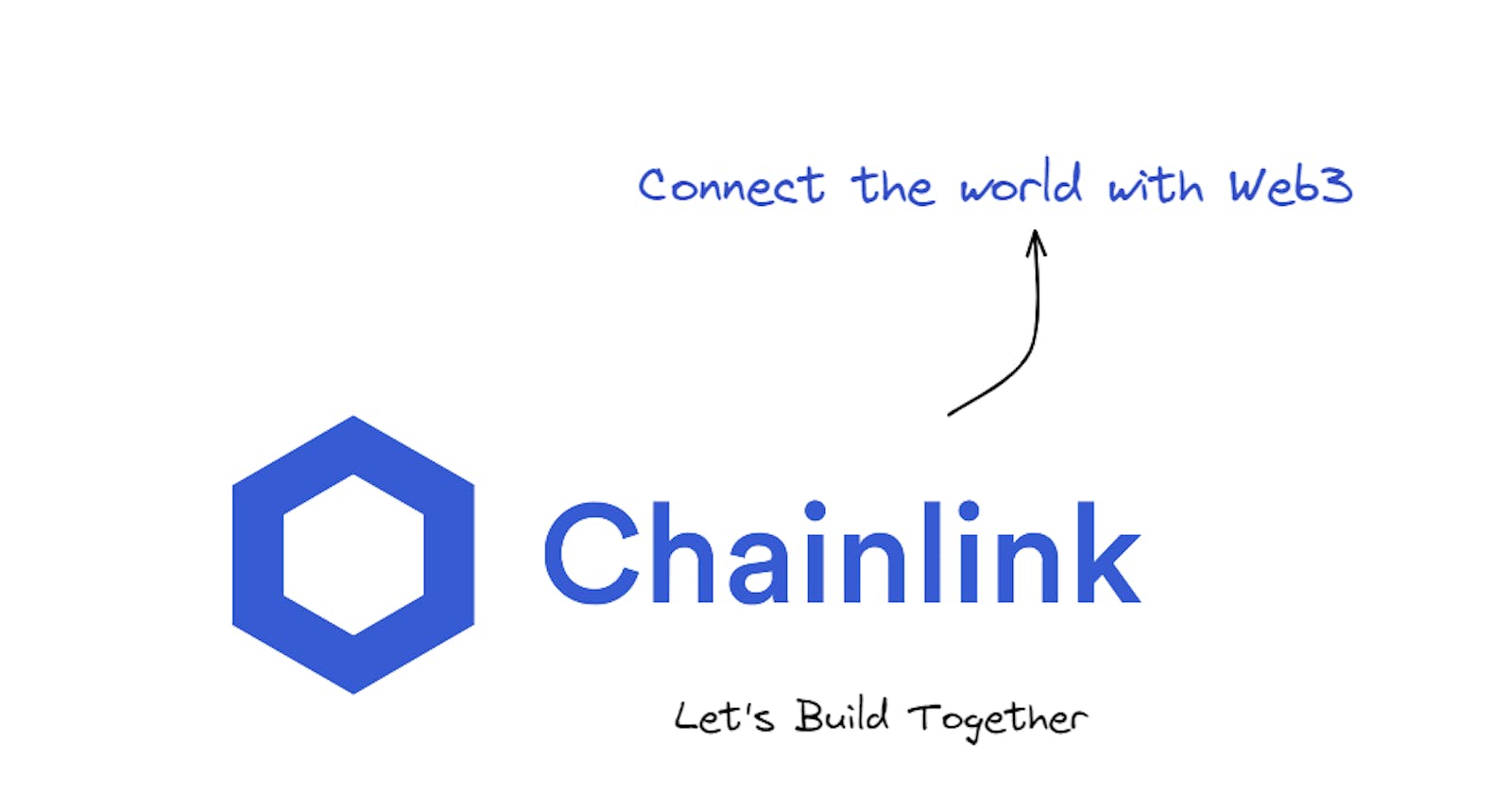Welcome to this chainlink web3 blog series, where I'm exploring the exciting world of web3 and its potential to change the future of technology and society.
Web3 Revolution Begins!
I believe we're in a unique moment in time. When we look back in 10 years, it'll be clear how special this movement is. Up until now, centralization limited how things could be built. Central entities could change the rules of the game at any time, in any way they wanted.
Developers and creators had a huge dependency on centralized platforms. Creators only received a fraction of the value they generated, and anyone trying to challenge the status quo risked getting shut down but web3 changes everything.
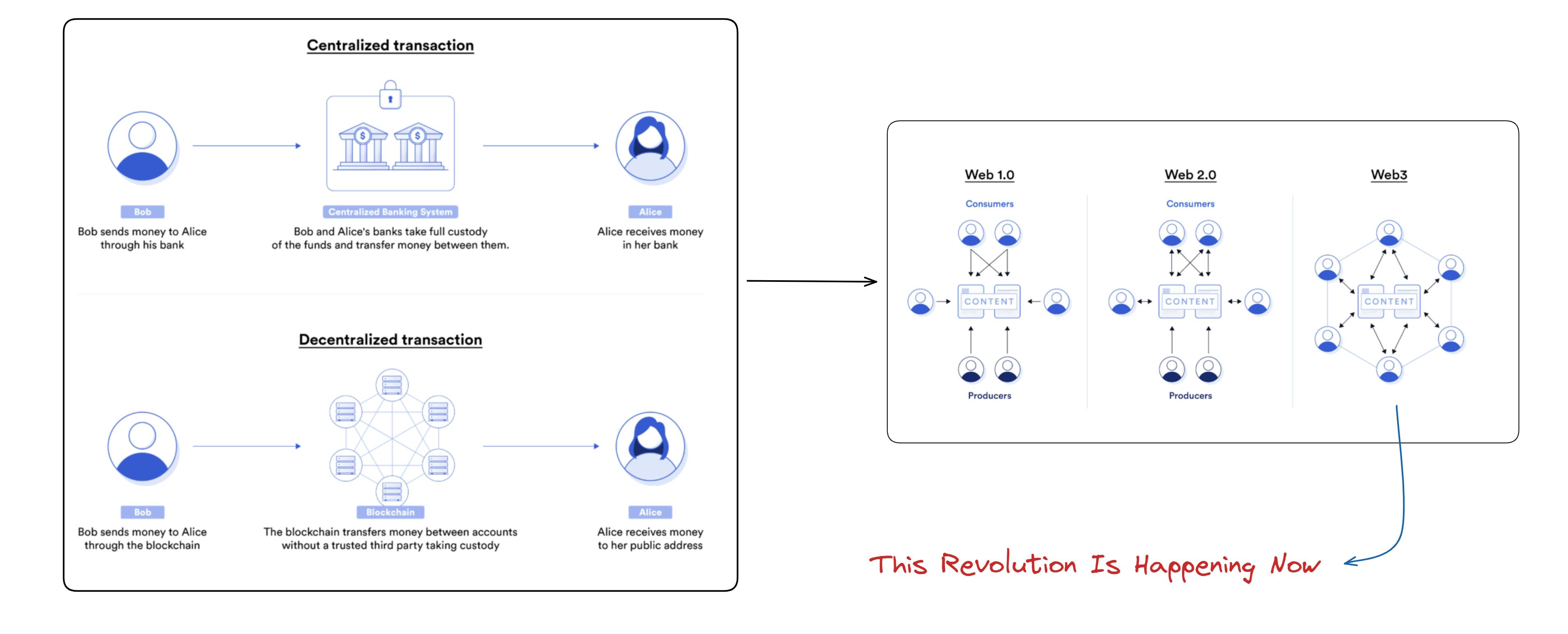
In a nutshell, we are currently experiencing a once-in-a-lifetime shift in the way we build things. For the first time ever, we can create apps that cannot be shut down and ensure fair access to users globally. This means that we can now build landing borrowing platforms for the unbanked, insurance products that pay out fairly, and lotteries that cannot be rigged. We can also coordinate global initiatives like actions for climate change.
This revolution presents a massive opportunity to build a world we would much rather live in, with multi-trillion dollar markets up for grabs. The earlier you get in, the higher the payoff. This unstoppable revolution is already happening, and we have the chance to be a part of it.
Trust minimization
Until now you had to trust everyone you interact with like every app, every service, and every Institution. Trust is good but having to trust everyone you interact with no proof that's a big problem.
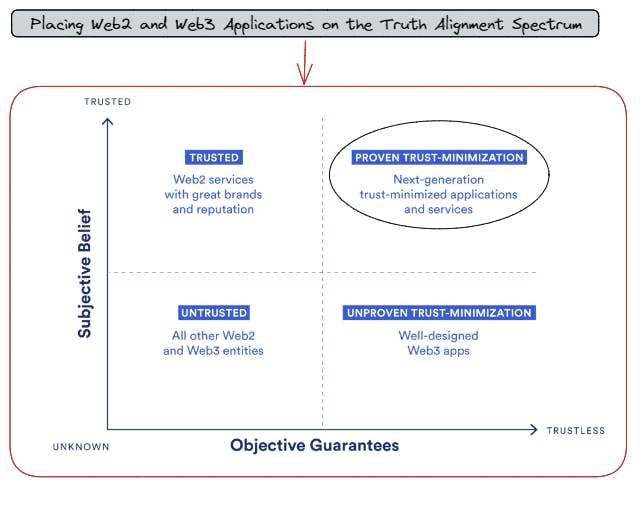
The current revolution in web3 is solving a major problem - they need to trust everyone they interact with online. Trust minimization is the solution, providing proof that the apps and services you use are fair and trustworthy. As people demand provably fair interactions, this revolution is rapidly gaining momentum, with massive investments and top talent pouring into the industry.
For builders, this is an unprecedented opportunity to shape the world using only a laptop and an internet connection. The power to drive this revolution lies in the hands of builders like you, and if you're looking to make a real impact, there's never been a better time to join.
But there's still a big limitation to building web 3.
1. Blockchains aren't connected to web2 data and systems
Web3 is not connected and what do I mean by that chains can't connect to the external World & take data, for example chains can't connect to external data and when we could connect chains with external data in a trust-minimized way the whole field of DeFi took off.
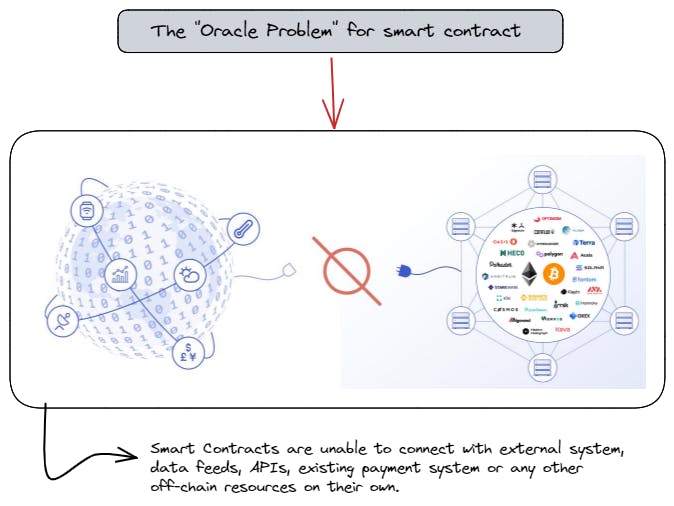
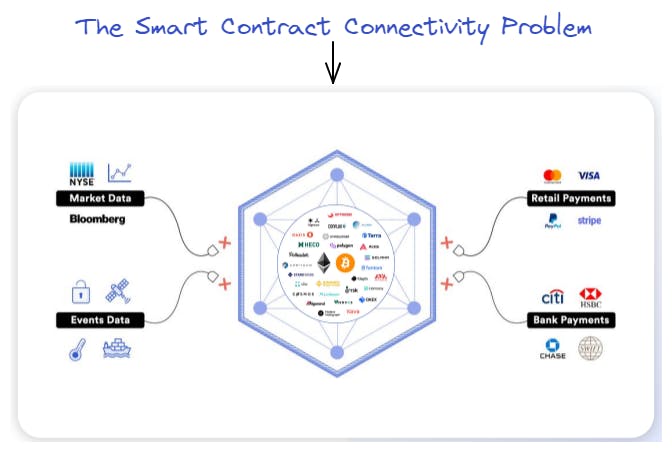
2. Blockchains aren't suitable for all kinds of computations
Smart contracts don't have automation. So If you're in automation and require automation capabilities, you will need to build it yourself, as smart contracts do not provide it. Additionally, advancements in artificial intelligence (AI) are not currently accessible to blockchain networks, limiting their potential for further innovation in this area.
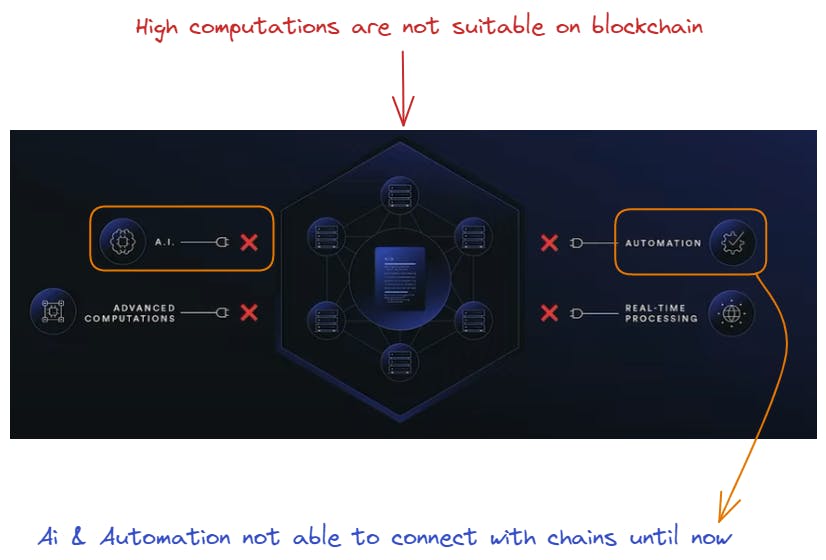
3. Blockchains can't talk to other blockchains
This is a big problem because in the blockchain ecosystem, you have assets that need to be moved from one chain to another chain.
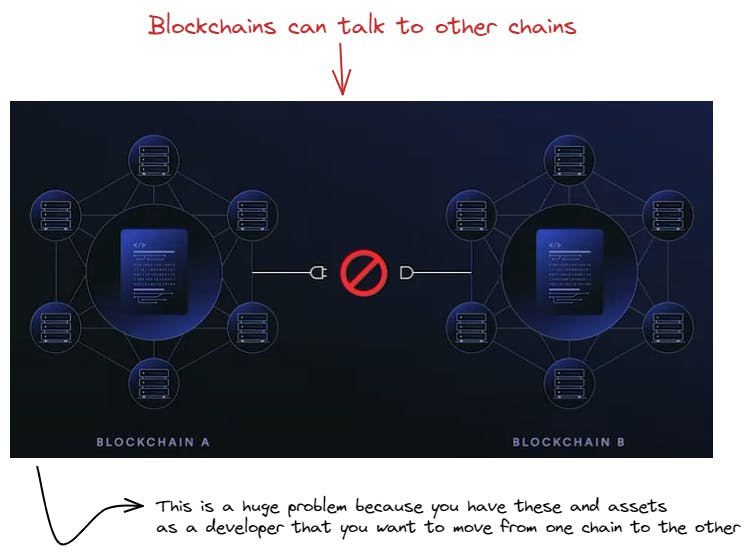
Or let's say you have smart contracts and want to communicate with other smart contracts, so the way you build apps by composing elements together as you do on Web2 is not possible to do natively on Web3.
